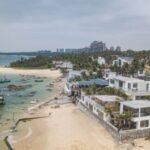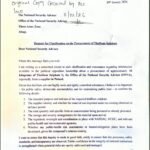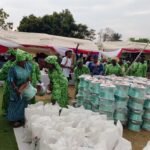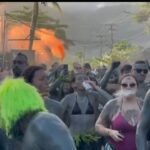A professor of Geography at the Bayero University Kano, Prof. Adamu Tanko, on Monday, called for the integration of geography studies into primary school curriculum, to enhance knowledge of the environment and disaster management.
Tanko made the call at the 60th annual conference of Association of Nigerian Geographers with the theme ‘Geography and Disaster Management’, held at Kaduna State University (KASU).
Tanko said geography should be taught primary and secondary schools for the students to acquaint themselves with their environment, help them manage disaster and be able to live and cope in environments other than theirs.
“The critical issues we have currently in this country where people are talking about all sorts of crises being ethnic or religious, have their base through lack of understanding of geography.
“If we build that understanding in our pupils from primary school, they would learn how to manage and understand differences and be able to appreciate them.
“In the colonial era, geography was taught in primary schools because they know the potentials it could have in our society, when they left, it was removed from primary school.
“Now again geography is to be removed from our secondary schools, it would lead to a bigger problems.
“Geography is very fundamental subject and that is why we feel it should be taught in our primary and secondary schools, by the time the students get to higher institutions, they will get to appreciate what differences are like,” he said.
The Director General of Nigeria Meteorological Agency (NIMET), Prof. Sani Mashi, also presented a paper on ‘Combating Climate Change in Nigeria: The war we are not seriously fighting.’
Mashi noted that the United Nations 13th goal of Sustainable Development Goals was for urgent action to combat climate change and its impact.
He said that there are existing evidences showing that in the last 650,000 years there have been seven cycles of glacial advance and retreat.
“With the abrupt end of the last ice age about 7,000 years ago, it has marked the beginning of the modern climate era and human civilization.
“From 1880 to 2012, average global temperature increased by 0.85 degree centigrade, oceans have warmed, the amount of snow and ice have diminished and sea level has risen.”
Mashi however said that certain actions like foregoing Fossil Fuels and employing alternative plant-derived plastics, biodiesel and wind power needed to be taken to combat climate change.
“Infrastructure upgrade, reduction of travel frequencies, buying less of automobile and desisting from cutting down trees would help us achieve the 13th SDGs,” he added.
At the sideline of the event, the vice chancellor of KASU, Prof Muhammad Tanko, said that the ‘Sex for Grade’ issue was a great concern for the academic environment of Nigeria.
Tanko who was represented by the deputy vice chancellor academics, Prof. Abdullahi Ashafa, however, berated the BBC for sampling only two universities in West Africa, saying that the decision cannot be justified.
“Why the choice of west Africa?, why didn’t they start with the UK universities which we know they are also not immune to this problem.
“KASU has zero tolerance for such attitudes, we have deterrent measures and laws guiding engagements, If any misdemeanor is reported, we will surely test our law,” he said.
“In a bid to curb such kind of behaviors among our lecturers, we key in the students assessment on their lecturers in promoting our academic staff”, he said.
He urged the Nigerian students to report any kind of act by their lecturers aimed at tarnishing their future and the reputation of Nigerian universities.
NAN








